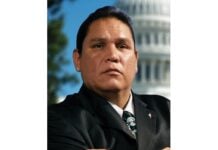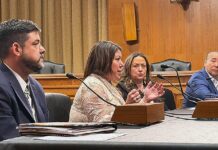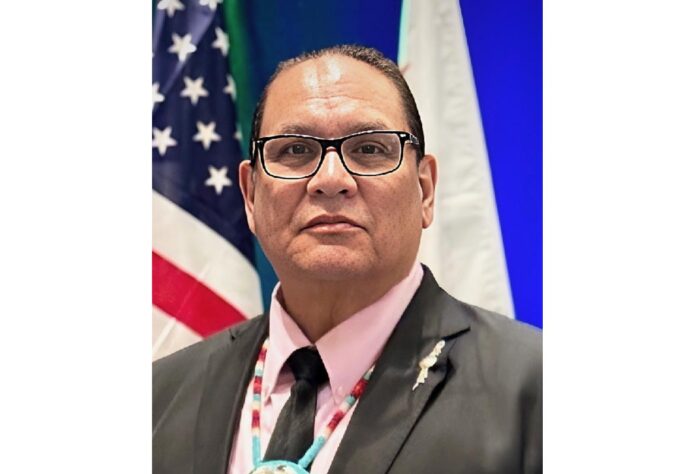by Ernest L. Stevens, Jr.
The Indian Gaming Association is hosting a legislative summit on May 13-14, 2025, in partnership with the National Congress of American Indians and other national and regional tribal organizations. The summit is set to take place when congressional efforts to advance the budget reconciliation process heat up.
Budget reconciliation and the release of the President’s FY2026 budget represent the two largest pieces of legislation that will be debated in 2025. Both items hold potential to significantly impact the government’s treaty and trust obligations to Indian Country. The budget reconciliation process enables the party in power to enact policy changes in mandatory spending (changes to Social Security are prohibited), taxation, and the federal debt limit. Reconciliation requires a simple majority vote in the Senate, avoiding the chamber’s filibuster rule, which requires a 60-vote threshold. Reconciliation is a two-step process that first requires the House and Senate to agree on a budget framework, which unlocks the process to draft legislation that meets the instructions included in the framework.
Recent examples of enacted reconciliation bills include: the Inflation Reduction Act of 2022, the COVID-related American Rescue Plan Act of 2021, the Tax Cuts and Jobs Act of 2017, and the Affordable Care Act of 2010. President Trump directed Congress to enact a single package to accomplish his top legislative priorities in 2025, which include extending the Tax Cuts and Jobs Act of 2017, and passing mandatory increases in funding for immigration and border enforcement, defense, and energy policy (increased oil, gas, and mining).
On April 10, 2025, Republican leadership adopted identical budget resolutions that direct authorizing committees to draft legislation that meets the President’s priorities and the specific funding targets outlined in the framework.
However, with narrow margins, House and Senate leaders must navigate a tightrope to develop the legislation and get it by both chambers. While congressional Republicans agree on the priorities outlined by the President, they disagree on what programs can or should be cut to offset the more than $4 trillion in spending increases required to accomplish their goals.
Some of the mandatory spending programs that could be the subject of cuts, include Medicaid, the food and nutrition programs, and the Temporary Assistance for Needy Families, among others.
Tribal governments and organizations have already sounded warnings against cutting Medicaid without protections to resources that go to fund Indian healthcare. Failure to exempt tribal healthcare resources would constitute a clear violation of the government’s treaty and trust obligations and will have devastating impacts on Indian healthcare.
Tribal healthcare advocates point to the fact that exempting IHS and tribal healthcare providers from Medicaid reforms will not materially impact the budget goals of reconciliation. The IHS projects billing Medicaid $1.3 billion in FY2025 for Indian healthcare. This represents 0.213% of overall federal medical assistance payments forecasted in FY2025. At the same time, this funding is essential to preserving access to needed care throughout Indian Country. Medicaid funding represents 30% to 60% of the annual budget for many individual tribal healthcare systems. Cuts to Medicaid will cripple health services throughout Indian Country.
While tribes are closely focused on limiting adverse impacts in the reconciliation bill, they are also eyeing opportunities for policy gains by amending the U.S. Tax Code to achieve long-sought “tax parity.” Tribal governments have long sought to bring parity to the Tax Code for purposes of the Low-Income Housing Tax Credit, the New Markets Tax Credit, Tax Exempt Bonds and other measures that are afforded to state and local governments and territories. These tax savings programs encourage private investment in a wide range of economic and infrastructure projects, but under current law – tribal governments are excluded from receiving or issuing these credits.
The budget reconciliation process could consume Congress through the summer. But, Congress has also begun work to develop the annual appropriations bills that keep federal agencies and programs funded for the coming fiscal year 2026, which starts on October 1, 2025.
The release of the President’s budget proposal is the official kickoff of the appropriations process. Unlike reconciliation, annual appropriations are subject to the Senate’s 60-vote filibuster threshold, which will require compromise.
As is the case when the White House transitions to a new administration, the appropriations process is delayed. The President’s annual budget is usually released in February. However, it took Congress until March 15th of this year to finally pass a year-long continuing resolution to fund agencies and programs for the remainder of the current fiscal year, which ends on September 30th.
Despite the delay, from February 25-27, the House Appropriations Subcommittee held a series of hearings to receive testimony from 100 tribal leaders and tribal organizations who shared their funding priorities for FY2026 and ongoing concerns with executive actions.
These executive actions have sought to remake agencies, close federal offices, freeze funding, and fire federal workers. To address these actions, Indian Country is uniting to tell our story. Our message is simple: Indian tribes are governments, and that fact is ingrained in the text of the United States Constitution. This nation was built on our tribal homelands. Any attempt to ignore these facts, ignores reality.
To address these challenges, we reignited the IGA/NCAI Taskforce in 2023 and we are building on that effort. In the early months of 2025, we have united with national and regional tribal government organizations to hold all elected leaders to account. The Coalition Group is a unified effort to educate Congress and the White House. We remind them of the history and constitutional standing of Indian tribes and their solemn obligations to Indian Country.
Our summit comes at a crucial time for tribal leaders and advocates to be in Washington, D.C., to advocate and educate federal decision-makers. We look forward to this year’s summit to unite with our member tribes and the national and regional tribal government organizations to hold all elected leaders to account. We will constantly remind them of the history and constitutional standing of Indian tribes and their solemn obligations to Indian Country.
Ernest L. Stevens, Jr. is Chairman of the Indian Gaming Association. He can be reached by calling (202) 546-7711 or visit www.indiangaming.org.















































